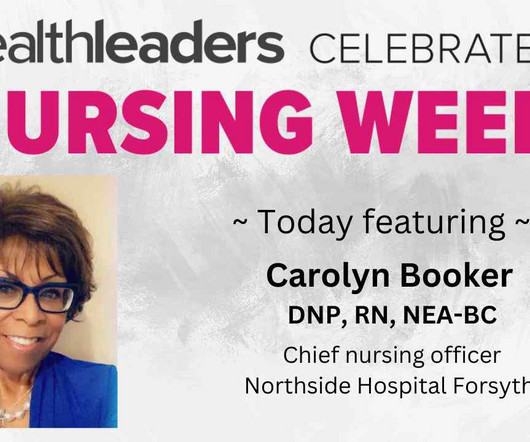National Nurses Week 2023: Chief Nurse Carolyn Booker Endured 'Trial by Fire' as a New Leader
Health Leaders | Nursing
MAY 9, 2023
A 5-part series celebrating nurse leaders who have claimed their place as a strategic partner in their organization's leadership. Editor’s note: Hospitals and health systems have seen a steady evolution of chief nursing officers taking a seat at the executive strategy table, guiding and participating in operations and policies.











Let's personalize your content